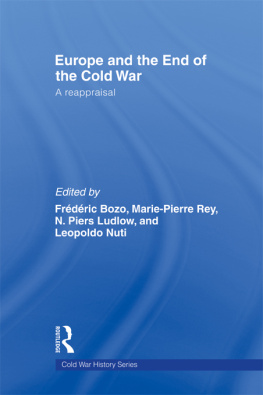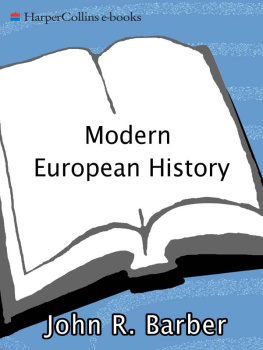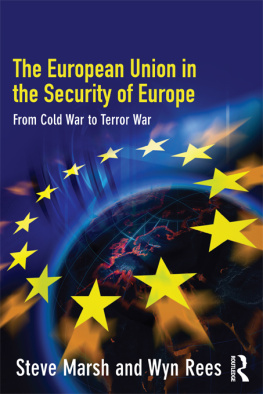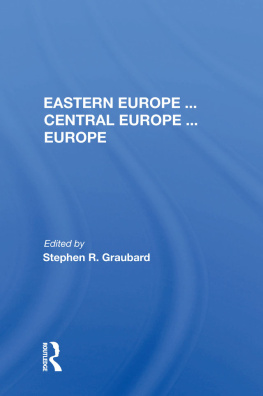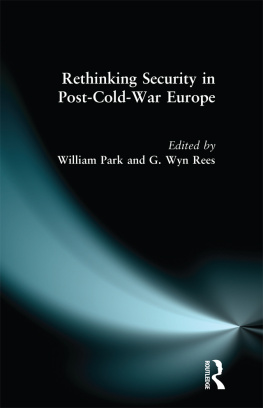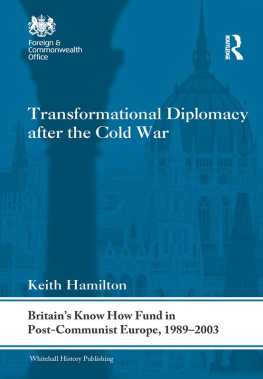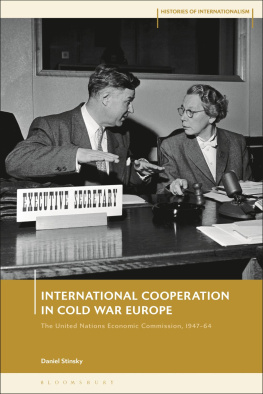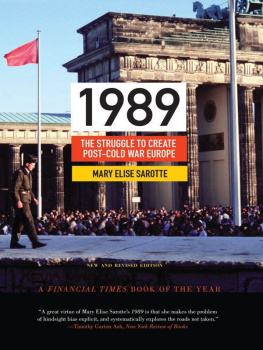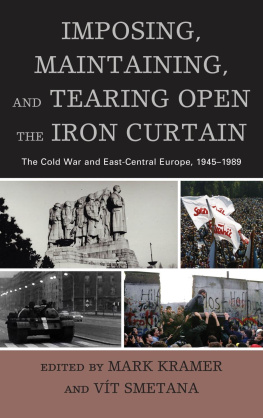
Europe and the End of the Cold War
This book seeks to reassess the role of Europe in the end of the Cold War and the process of German unification.
Much of the existing literature on the end of the Cold War has focused primarily on the role of the superpowers and on that of the US in particular. This edited volume seeks to redirect the focus towards the role of European actors and the importance of European processes, most notably that of integration. Written by leading experts in the field, and making use of newly available source material, the book explores Europe in all its various dimensions, bringing to the forefront of historical research previously neglected actors and processes. These include key European nations, endemic evolutions in the Soviet Union and Eastern Europe, European integration, and the pan-European process. The volume serves therefore to rediscover the transformation of 198990 as a European event, deeply influenced by European actors, and of great significance for the subsequent evolution of the continent.
This book will be of great interest to students of Cold War Studies, Contemporary European History and International Relations in general.
Frdric Bozo is Professor of Contemporary History, Sorbonne (University of Paris III, Department of European Studies). Marie-Pierre Rey is Professor of Russian and Soviet History, Sorbonne (University of Paris I, Department of History). N. Piers Ludlow is Senior Lecturer in International History (London School of Politics and Economics). Leopoldo Nuti is Professor of History of International Relations (University of Roma Tre).
Cold War history series
Series Editors: Odd Arne Westad and Michael Cox
ISSN: 1471-3829
In the new history of the Cold War that has been forming since 1989, many of the established truths about the international conflict that shaped the latter half of the twentieth century have come up for revision. The present series is an attempt to make available interpretations and materials that will help further the development of this new history, and it will concentrate in particular on publishing expositions of key historical issues and critical surveys of newly available sources.
1 Reviewing the Cold War
Approaches, interpretations, and theory
Edited by Odd Arne Westad
2 Rethinking Theory and History in the Cold War
Richard Saull
3 British and American Anticommunism before the Cold War
Marrku Ruotsila
4 Europe, Cold War and Co-existence, 19531965
Edited by Wilfred Loth
5 The Last Decade of the Cold War
From conflict escalation to conflict transformation
Edited by Olav Njlstad
6 Reinterpreting the End of the Cold War
Issues, interpretations, periodizations
Edited by Silvio Pons and Federico Romero
7 Across the Blocs
Cold War cultural and social history
Edited by Rana Mitter and Patrick Major
8 US Paramilitary Assistance to South Vietnam
Insurgency, subversion and public order
William Rosenau
9 The European Community and the Crises of the 1960s
Negotiating the Gaullist challenge
N. Piers Ludlow
10 SovietVietnam Relations and the Role of China 194964
Changing alliances
Mari Olsen
11 The Third Indochina War
Conflict between China, Vietnam and Cambodia, 197279
Edited by Odd Arne Westad and Sophie Quinn-Judge
12 Greece and the Cold War
Front line state, 19521967
Evanthis Hatzivassiliou
13 Economic Statecraft during the Cold War
European responses to the US trade embargo
Frank Cain
14 Macmillan, Khrushchev and the Berlin Crisis, 19581960
Kitty Newman
15 The Emergence of Dtente in Europe
Brandt, Kennedy and the formation of Ostpolitik
Arne Hofmann
16 European Integration and the Cold War
OstpolitikWestpolitik, 19651973
Edited by N. Piers Ludlow
17 Britain, Germany and the Cold War
The search for a European dtente 19491967
R. Gerald Hughes
18 The Military Balance in the Cold War
US perceptions and policy, 197685
David M. Walsh
19 Europe and the End of the Cold War
A reappraisal
Edited by Frdric Bozo, Marie-Pierre Rey, N. Piers Ludlow, and Leopoldo Nuti
Europe and the End of the Cold War
A reappraisal
Edited by Frdric Bozo, Marie-Pierre Rey, N. Piers Ludlow, and Leopoldo Nuti

First published 2008
by Routledge
2 Park Square, Milton Park, Abingdon, Oxon OX14 4RN
Simultaneously published in the USA and Canada
by Routledge
270 Madison Ave, New York, NY 10016
Routledge is an imprint of the Taylor & Francis Group, an informa business
2008 Selection and editorial matter, Frdric Bozo, Marie-Pierre Rey, N. Piers Ludlow, and Leopoldo Nuti; individual chapters, the contributors
Typeset in Baskerville by Wearset Ltd, Boldon, Tyne and Wear Printed and bound in Great Britain by TJI Digital, Padstow, Cornwall
All rights reserved. No part of this book may be reprinted or reproduced or utilised in any form or by any electronic, mechanical, or other means, now known or hereafter invented, including photocopying and recording, or in any information storage or retrieval system, without permission in writing from the publishers.
British Library Cataloguing in Publication Data
A catalogue record for this book is available from the British Library
Library of Congress Cataloging in Publication Data
A catalog record for this book has been requested
ISBN10: 0-415-44903-0 (hbk)
ISBN10: 0-203-93095-9 (ebk)
ISBN13: 978-0-415-44903-8 (hbk)
ISBN13: 978-0-203-93095-3 (ebk)
Contents
Contributors
Hannes Adomeit is Senior Research Associate at the Stiftung Wissenschaft und Politik, Berlin, and Director of Eastern Studies at the College of Europe in Natolin (Warsaw). His academic degrees are from the Freie Universitt Berlin and Columbia University, NY. Among his publications are Imperial Overstretch: Germany in Soviet Policy from Stalin to Gorbachev (Baden-Baden: Nomos, 1998).
Lszl Borhi is a Senior Research Fellow, Institute of History, Hungarian Academy of Sciences; formerly holder of Hungarian Chair, Indiana University, Bloomington. A graduate of ELTE Budapest and Indiana University, Bloomington, his most recent book in English is Hungary in the Cold War 19451956: Between the Soviet Union and the United States (CEU Press, 2004)
Frdric Bozo is Professor at the Sorbonne (Universit de Paris III, Department of European Studies). His main research interests are cold war history, transatlantic relations and French foreign and security policy. His latest book is: Mitterrand, la fin de la guerre froide et lunification allemande. De Yalta Maastricht (Paris: Odile Jacob, 2005, English translation forthcoming, Berghahn Books).
Michael Cox holds a Chair in the Department of International Relations at the London School of Economics where he is also Director of the Cold War Studies Centre. He holds Fellowships at Chatham House London, at the Royal United Services Institute, Whitehall, and at the Institute of the Americas, the University of London. He is the author of over 20 books including in 2007 an eight-volume study for Sage entitled
Next page
